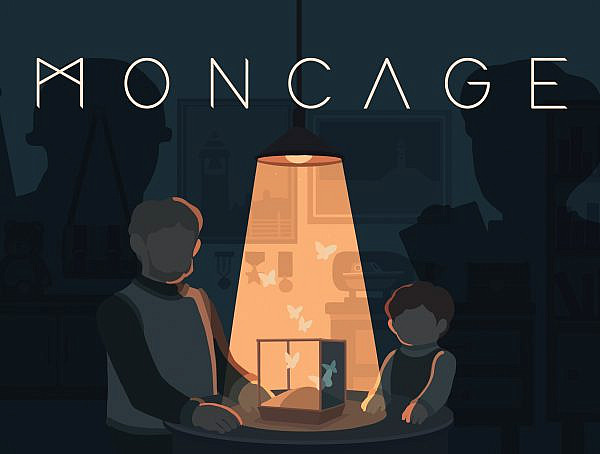The narrative adventure games Life is Strange and The Walking Dead: Season Two superficially depict female empowerment while simultaneously establishing conventional forms of sexism. This is concluded in the 2017 article by Mahli-Ann Rakkomkaew Butt and Daniel Dunne: “Rebel Girls and Consequences in Life is Strange and The Walking Dead”. The article analyses how the aforementioned video games insinuate sexism and discrimination of women in the final acts of the games. Butt and Dunne compare the two dilemmas presented during the final act, i.e. choosing between letting your best friend die or destroy an entire town in Life is Strange and choosing between two people’s lives in The Walking Dead, with The Trolley Problem by Phillipa Foot (1967). The Trolley Problem is a thought exercise: a trolley is approaching a group of people fallen on two train tracks, and you as an “agent” have the power of either saving five lives and killing one or vice versa. This is comparable with the dilemmas the games are providing the player clearly insinuating the value of saving a greater amount of lives. The player is handed with two seemingly morally difficult and weighty options, as the women protagonists face the consequences of their rebellious behavior in the game.
In Life is Strange, the player is confronted with a difficult decision of choosing the protagonist’s Max’s best friend Chloe over destroying their hometown Arcadia Bay. According to the article’s researchers, the game heavily implies the underlying importance of saving Arcadia Bay over Chloe since she’s been portrayed as a “damsel in distress”, whose defiant attitude and poor judgment justify sacrificing her for the greater good. Consequently, this supposition undermines women’s equal importance to men creating a patriarchal status quo. Same happens in The Walking Dead, where the young protagonist Clementine is forced to choose between two of her closest allies during the final act of the game. Jane, though cold and independent, teaches Clementine essential survival skills to live through the zombie apocalypse. Kenny, on the other hand, is an authoritative father figure to Clementine, often exaggerating his role in the young girl’s life. The article concludes that the game condemns Jane’s character for her stubbornness, masculine and clandestine demeanor causing distrust in other characters. She is regarded as a threat to a tight-knit community, while Kenny is portrayed as the bona fide leader of the group being the oldest and most experienced of the bunch, while his violent nature is obvious to everyone else. Relating this to the trolley problem, the player assuming the role of Clementine has to decide between the greater good (Kenny) or individual benefit (Jane). The outcome differs majorly between two characters. While choosing Kenny allows the community to stay together and old members re-emerge, Jane brings nothing but a gloomy fate to her and Clementine, as they separate from the community and live on their own.
Furthermore, Butt and Dunne expand on the definition of the Trolley Problem; agent’s intention of doing morally right is separate from the consequences of the action. In this sense, killing one or five people are both considered equally wrong actions, but only killing more people does harm to the greater good. This can act as a moral compass to actions: the more live the better. But it also mitigates the individual’s needs. For example, the five persons on the other track can be criminals but considering the greater good the more live the better. Foot regards this as a “consequentialist dilemma”, where action and nonaction relate to the agent’s moral responsibility. Butt and Dunne further exemplify how Trolley Problem’s consequentialist dilemma can actually be comparable to Life is Strange and The Walking Dead’s endings, where if the protagonists choose to do nothing, they can’t be morally held responsible for their actions.
In sum, Butt and Dunne place ethical responsibility onto the gaming industry as fostering the culture of isolating women from the community demanding better judgment of the presented narratives. The surrounding social context of oppressing women and viewing them as less moral, especially in gender essentialist traditions, is a major factor in these games. Furthermore, the autonomy of the games’ women characters is undermined in contrast to the interactive genre games’ philosophy of creating one’s adventure.
The article “Rebel Girls and Consequences in Life is Strange and The Walking Dead” by Mahli-Ann Rakkomkaew Butt and Daniel Dunne was published in Games and Culture: A Journal of Interactive Media. It can be read from https://doi.org/10.1177/1555412017744695.
The image “value and action” by palooja is licensed under CC BY 2.0 .
You might also like
More from Game Research Highlights
How do you want to do this? – A look into the therapeutic uses of role-playing games
Can playing RPGs contribute positively to your wellbeing? A recent study aims to find out how RPGs are being used …
Eldritch horrors and tentacles – Defining what “Lovecraftian” is in games
H.P. Lovecrafts legacy lives today in the shared world of Cthulhu Mythos and its iconic monsters. Prema Arasu defines the …
Are Souls Games the Contemporary Myths?
Dom Ford’s Approaching FromSoftware’s Souls Games as Myth reveals the Souls series as a modern mythology where gods fall, desires …
















